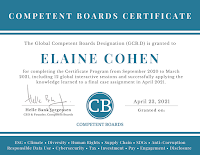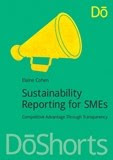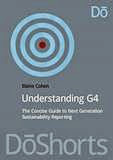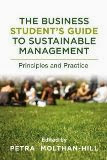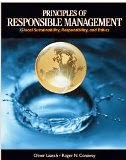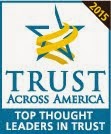It's just incredible how everyone is jumping down the throat of sustainability and sustainability reporting as a result of the Volkswagen crimes against emissions. Is the sustainability movement so fragile that the deliberate fraudulent behavior of one corporation can disrupt the credibility of thousands of corporations that are making genuine efforts to act ethically, responsibly and ... wow, even legally? The first thing many people are saying now that Volkswagen is down the tubes is: "Aha, vindicated at last, that's the end of CSR. Just look at Volkswagen's last Sustainability Report. What a waste of paper. This just proves that CSR is all a big waste of time. It's about time we started refocusing on business and leaving out the sustainability PR stuff."
A few examples from the flurry of writings over the past couple of days:
"Volkswagen takes down corporate social responsibility in its plunge to the bottom of the sea"
Linda Greer's blog on the NRDC likens Volkswagen's statements in its sustainability report to something out of a Hollywood script. She finds it incredible that environmental professionals actually believe anything that's written in self-reported glossy brochures and infographics. Now that Volkswagen is exposed, she says we have to reevaluate what other companies are up to.
"Volkswagen and the dark side of corporate sustainability"
Lauren Helper's post focuses on ratings and rankings, noting that the DJSI is now developing a new picture of public perception that will be factored in to DJSI rankings. The conclusion is foregone. DJSI will want to drop Volkswagen even faster than shareholders are dumping Volkswagen's stock. And then of course, the entire voluntary thing is now on the chopping table. If it's a voluntary disclosure, it must be rubbish. Henk Campher, a well-known PR player in sustainability circles actually says "I'm not surprised this happened!". Lack of regulation and paying too much attention to ratings and rankings are apparently among the root causes according to Henk.
Linda Greer's blog on the NRDC likens Volkswagen's statements in its sustainability report to something out of a Hollywood script. She finds it incredible that environmental professionals actually believe anything that's written in self-reported glossy brochures and infographics. Now that Volkswagen is exposed, she says we have to reevaluate what other companies are up to.
"Volkswagen and the dark side of corporate sustainability"
Lauren Helper's post focuses on ratings and rankings, noting that the DJSI is now developing a new picture of public perception that will be factored in to DJSI rankings. The conclusion is foregone. DJSI will want to drop Volkswagen even faster than shareholders are dumping Volkswagen's stock. And then of course, the entire voluntary thing is now on the chopping table. If it's a voluntary disclosure, it must be rubbish. Henk Campher, a well-known PR player in sustainability circles actually says "I'm not surprised this happened!". Lack of regulation and paying too much attention to ratings and rankings are apparently among the root causes according to Henk.
"VW Scandal a Jolt to 'CSR' That Reaches Far Beyond the Auto Industry"
Leon Kaye's take on the Volkswagen impact, published on Sustainable Brands also makes the point that Volkswagen cheated = CSR is rubbish: "For too long now, CSR has focused far more on theatrics and less on tangible results.....CSR lens tends to focus on accolades and congratulate each other for stories well told ..Volkwagen’s struggles send a signal to the CSR and sustainability crowd that it must start changing its tone and set its sights on what it does best - helping organizations operate more sustainably.... " According to Leon, the sustainability movement risks "irrelevance" because one corporation has managed to get away with cheating the system for a few years.
"VW Scandal Exposes What Has Gone Awry with ‘CSR’"
Another article from Leon Kaye, this time on Triple Pundit, offers a similar take: "Unfortunately, while the ideals behind corporate social responsibility certainly have merit, the overall execution has been deeply flawed. The trend in CSR has been to focus more on goals and aspirations, and less on concrete and tangible results."
"The Volkswagen diesel deception - 5 key questions "
Rather than delivering their own diatribe denouncing CSR and Sustainability movement, Crane and Matten ask five questions about the "nature of corporate responsibility" that arise as a result of Volkswagengate. Top of the list - you guessed it. " How is it possible that a company committed to some of the core values of corporate responsibility could so blatantly cross the line into not only unethical but clearly illegal practice in a key area of its responsibilities? Is this just another greenwash case to fuel further cynicism about the CSR commitment of corporations?"
"Here's The Joke Of A Sustainability Report That VW Put Out Last Year"
Emily Peck at Huffington Post takes the well-traveled path, pulling holes Volkswagen's statements about values, commitment and ethics. She even counts the number of times the word "environment" appears in Volkswagen's last report. She calls it an absurd document.
Well, folks, let me set a few things straight. It's easy enough to get settled in on the CSR-bashing bandwagon. Instead, I offer five truths about the current discourse on Volkswagen and CSR.
ONE: The fact that a company is highly placed in rankings and ratings means not all that much.
In my view, rankings and ratings are designed in the best interests of the rankers and the raters. I believe they are rarely rigorous enough or balanced enough to be a reliable guide for investors or for any other stakeholder. Comparability among companies, even within sectors, remains nebulous. Ratings are designed to give the rankers and the raters a claim to fame and often, a revenue stream. Just look at how the same company can rank top in one system and bottom in another and pretty much everywhere on the spectrum in several others. Rankings and ratings are not necessarily a bad things (as long as we don't believe them). They play a role in framing a debate and generating some competitive interest. They can be a CEO hook. That can encourage companies to do better. On the other hand, rankings may encourage companies to appear to do better. Possibly the strive to be a supersector superpower partially fuelled the creative criminality at Volkswagen, who knows? The point is, just the fact that Volkswagen was a DJSI superstar is not directly connected to the set of actions that caused the current issue. And the fact that one company screwed up does not make the rankings and ratings any better or any worse than they already are.
I think my respected colleague Antonio Vives comes to the same conclusion. More or less. My Spanish is not that good. In his article about Volkswagengate, he concludes: "Esto también nos demuestra que las calificaciones, rankings y premiso de responsabilidad deben tomarse con mucha suspicacia." which Google translated for me as "This also shows that the ratings, rankings and permission of responsibility should be taken with great suspicion."
TWO: The fact that a company produces great sustainability reports does not mean it is perfect.
Oh dear!! Did I disappoint you? Did you think that Sustainability Reporting comes with a squeaky clean bill-of-health in the sustainable-company department? Well, it does come with a guarantee. But not the one you think. Sustainability Reporting comes with a guarantee that the information that is NOT reported is the information that is MOST relevant to stakeholders. Hah. Work that one out. The upside is that sustainability reporting adds value in so many ways and the information that IS reported often has value as well. But the fact that there was dirty dealing at Volkswagen does not means that every single word in its Sustainability Report was untrue, or that other sustainability reports of other companies are suddenly irrelevant. Sustainability reporting as a process adds value, it empowers people, it catalyzes performance and it enables dialogue. One dirty player doesn't change that. But it does remind us that, as stakeholders, we are the vigilantes. When was the last time you asked a company about something they published in their Sustainability Report? It's easy to sit on the sidelines and say the system doesn't work when you are doing nothing to make it work.
THREE: The fact that people break the law is a fact. It's not always preventable. That's not about sustainability. Sometimes it's just breaking the law.
How many companies have Codes of Ethics these days? All of them? How many companies have people who work for them that break the law? All of them? How many companies say they value women in management? All of them? How many companies have less than 50% women in management? Nearly all of them? How many companies have teams of lawyers fighting legal breaches or misdemeanors? Most of them? The point is that there will always be differences between saying and doing and there will always be people who break the law. They may be your family, your friends, your neighbors, your colleagues, your employees or your bosses. If they want to break the law, there's probably nothing you can do to stop them. Unless you speak out. Why did no-one at Volkswagen speak out? That's the most interesting question of all. How many people were complicit in this crazy scheme and how many thought they were acting in their own best interests? I guess we will hear the sensational details sooner or later, but if I were in a CEO seat right now, I would start making whistle-blowing one of the top corporate values alongside reinforcing the values of trust, honesty, legal and ethical behavior. As we say in the Middle East, "Trust in Allah, but tie your camel." But does the fact that people want to break the law and the corporate culture is not strong enough to prevent them doing so equate to CSR being an ineffective waste of time? Don't think so. That math doesn't add up.
FOUR: More regulation will not prevent companies circumventing regulation. Voluntary does have value.
Yeah, yeah, yeah, all this voluntary stuff is not what it's cracked up to be, the naysayers are naysaying. Time to change the laws, make more laws, don't let companies do just what they want. Well, truth be told, it's much of the voluntary work that is done by corporations in the field of CSR that has influenced and continues to influence greater lawmaking. Would Europe have passed a directive on mandatory sustainability reporting had not the largest companies in the world led the charge and undertaken to do so voluntarily? No way. And I could give a thousand more examples. Voluntary CSR has a way of raising the bar, paving the way for regulation to touch it up around the edges and level the playing field. What's the alternative? Sit around and wait for lawmakers to wake up? Look where that got us RIO+20. A corporate reality without voluntary CSR and sustainability strategies would be a far grimmer reality than the one we share today. And finally for the pro-regulators, this would not have prevented Volkswagengate. Regulation was in place. Volkswagen broke the law, systematically and deliberately. (See truth three above). Maybe we should pass a law saying that people in companies should not break the law. Now, there's a thought.
FIVE: The fact that Volkswagen is history does not mean that sustainability is too.
The sustainability movement will be around long after Volkswagen has been buried under the 11 million vehicles it may need to recall or pay compensation for. Thousands of companies around the world have been saying that sustainability in one form or another is one of the most important aspects of the way they do business for many years now. Some of them are winging it, PR-blurbing and greenwashing ... but many are genuinely genuine. Look at the CEO surveys over the last couple of years. Sustainability is the talk and many are walking the talk. No company has reached perfection. Everyone is still walking. Might be good if we picked up the walking pace to a light jog sometime soon, but what's been achieved so far is not cancelled by Winterkorn and team. That would be far overstating the power that Volkswagen can leverage both in the motor vehicle sector and in general. Watch this space. Sustainability will outlive Volkswagen.
Anyway, at least I don't drive a Volkswagen. I just hope Hyundai doesn't screw up some time soon.
elaine cohen, CSR consultant, Sustainability Reporter, HR Professional, Ice Cream Addict. Author of Understanding G4: the Concise Guide to Next Generation Sustainability Reporting AND Sustainability Reporting for SMEs: Competitive Advantage Through Transparency AND CSR for HR: A necessary partnership for advancing responsible business practices . Contact me via Twitter (@elainecohen) or via my business website www.b-yond.biz (Beyond Business Ltd, an inspired CSR consulting and Sustainability Reporting firm). Need help writing your first / next Sustainability Report? Contact elaine: info@b-yond.biz
Leon Kaye's take on the Volkswagen impact, published on Sustainable Brands also makes the point that Volkswagen cheated = CSR is rubbish: "For too long now, CSR has focused far more on theatrics and less on tangible results.....CSR lens tends to focus on accolades and congratulate each other for stories well told ..Volkwagen’s struggles send a signal to the CSR and sustainability crowd that it must start changing its tone and set its sights on what it does best - helping organizations operate more sustainably.... " According to Leon, the sustainability movement risks "irrelevance" because one corporation has managed to get away with cheating the system for a few years.
"VW Scandal Exposes What Has Gone Awry with ‘CSR’"
Another article from Leon Kaye, this time on Triple Pundit, offers a similar take: "Unfortunately, while the ideals behind corporate social responsibility certainly have merit, the overall execution has been deeply flawed. The trend in CSR has been to focus more on goals and aspirations, and less on concrete and tangible results."
"The Volkswagen diesel deception - 5 key questions "
Rather than delivering their own diatribe denouncing CSR and Sustainability movement, Crane and Matten ask five questions about the "nature of corporate responsibility" that arise as a result of Volkswagengate. Top of the list - you guessed it. " How is it possible that a company committed to some of the core values of corporate responsibility could so blatantly cross the line into not only unethical but clearly illegal practice in a key area of its responsibilities? Is this just another greenwash case to fuel further cynicism about the CSR commitment of corporations?"
"Here's The Joke Of A Sustainability Report That VW Put Out Last Year"
Emily Peck at Huffington Post takes the well-traveled path, pulling holes Volkswagen's statements about values, commitment and ethics. She even counts the number of times the word "environment" appears in Volkswagen's last report. She calls it an absurd document.
Well, folks, let me set a few things straight. It's easy enough to get settled in on the CSR-bashing bandwagon. Instead, I offer five truths about the current discourse on Volkswagen and CSR.
ONE: The fact that a company is highly placed in rankings and ratings means not all that much.
In my view, rankings and ratings are designed in the best interests of the rankers and the raters. I believe they are rarely rigorous enough or balanced enough to be a reliable guide for investors or for any other stakeholder. Comparability among companies, even within sectors, remains nebulous. Ratings are designed to give the rankers and the raters a claim to fame and often, a revenue stream. Just look at how the same company can rank top in one system and bottom in another and pretty much everywhere on the spectrum in several others. Rankings and ratings are not necessarily a bad things (as long as we don't believe them). They play a role in framing a debate and generating some competitive interest. They can be a CEO hook. That can encourage companies to do better. On the other hand, rankings may encourage companies to appear to do better. Possibly the strive to be a supersector superpower partially fuelled the creative criminality at Volkswagen, who knows? The point is, just the fact that Volkswagen was a DJSI superstar is not directly connected to the set of actions that caused the current issue. And the fact that one company screwed up does not make the rankings and ratings any better or any worse than they already are.
I think my respected colleague Antonio Vives comes to the same conclusion. More or less. My Spanish is not that good. In his article about Volkswagengate, he concludes: "Esto también nos demuestra que las calificaciones, rankings y premiso de responsabilidad deben tomarse con mucha suspicacia." which Google translated for me as "This also shows that the ratings, rankings and permission of responsibility should be taken with great suspicion."
TWO: The fact that a company produces great sustainability reports does not mean it is perfect.
Oh dear!! Did I disappoint you? Did you think that Sustainability Reporting comes with a squeaky clean bill-of-health in the sustainable-company department? Well, it does come with a guarantee. But not the one you think. Sustainability Reporting comes with a guarantee that the information that is NOT reported is the information that is MOST relevant to stakeholders. Hah. Work that one out. The upside is that sustainability reporting adds value in so many ways and the information that IS reported often has value as well. But the fact that there was dirty dealing at Volkswagen does not means that every single word in its Sustainability Report was untrue, or that other sustainability reports of other companies are suddenly irrelevant. Sustainability reporting as a process adds value, it empowers people, it catalyzes performance and it enables dialogue. One dirty player doesn't change that. But it does remind us that, as stakeholders, we are the vigilantes. When was the last time you asked a company about something they published in their Sustainability Report? It's easy to sit on the sidelines and say the system doesn't work when you are doing nothing to make it work.
THREE: The fact that people break the law is a fact. It's not always preventable. That's not about sustainability. Sometimes it's just breaking the law.
How many companies have Codes of Ethics these days? All of them? How many companies have people who work for them that break the law? All of them? How many companies say they value women in management? All of them? How many companies have less than 50% women in management? Nearly all of them? How many companies have teams of lawyers fighting legal breaches or misdemeanors? Most of them? The point is that there will always be differences between saying and doing and there will always be people who break the law. They may be your family, your friends, your neighbors, your colleagues, your employees or your bosses. If they want to break the law, there's probably nothing you can do to stop them. Unless you speak out. Why did no-one at Volkswagen speak out? That's the most interesting question of all. How many people were complicit in this crazy scheme and how many thought they were acting in their own best interests? I guess we will hear the sensational details sooner or later, but if I were in a CEO seat right now, I would start making whistle-blowing one of the top corporate values alongside reinforcing the values of trust, honesty, legal and ethical behavior. As we say in the Middle East, "Trust in Allah, but tie your camel." But does the fact that people want to break the law and the corporate culture is not strong enough to prevent them doing so equate to CSR being an ineffective waste of time? Don't think so. That math doesn't add up.
FOUR: More regulation will not prevent companies circumventing regulation. Voluntary does have value.
Yeah, yeah, yeah, all this voluntary stuff is not what it's cracked up to be, the naysayers are naysaying. Time to change the laws, make more laws, don't let companies do just what they want. Well, truth be told, it's much of the voluntary work that is done by corporations in the field of CSR that has influenced and continues to influence greater lawmaking. Would Europe have passed a directive on mandatory sustainability reporting had not the largest companies in the world led the charge and undertaken to do so voluntarily? No way. And I could give a thousand more examples. Voluntary CSR has a way of raising the bar, paving the way for regulation to touch it up around the edges and level the playing field. What's the alternative? Sit around and wait for lawmakers to wake up? Look where that got us RIO+20. A corporate reality without voluntary CSR and sustainability strategies would be a far grimmer reality than the one we share today. And finally for the pro-regulators, this would not have prevented Volkswagengate. Regulation was in place. Volkswagen broke the law, systematically and deliberately. (See truth three above). Maybe we should pass a law saying that people in companies should not break the law. Now, there's a thought.
FIVE: The fact that Volkswagen is history does not mean that sustainability is too.
The sustainability movement will be around long after Volkswagen has been buried under the 11 million vehicles it may need to recall or pay compensation for. Thousands of companies around the world have been saying that sustainability in one form or another is one of the most important aspects of the way they do business for many years now. Some of them are winging it, PR-blurbing and greenwashing ... but many are genuinely genuine. Look at the CEO surveys over the last couple of years. Sustainability is the talk and many are walking the talk. No company has reached perfection. Everyone is still walking. Might be good if we picked up the walking pace to a light jog sometime soon, but what's been achieved so far is not cancelled by Winterkorn and team. That would be far overstating the power that Volkswagen can leverage both in the motor vehicle sector and in general. Watch this space. Sustainability will outlive Volkswagen.
Anyway, at least I don't drive a Volkswagen. I just hope Hyundai doesn't screw up some time soon.











